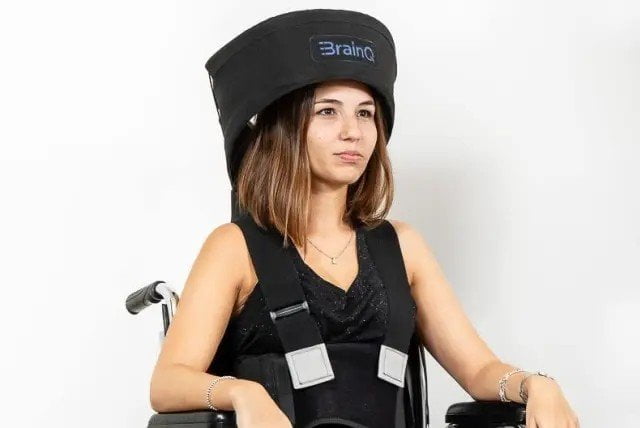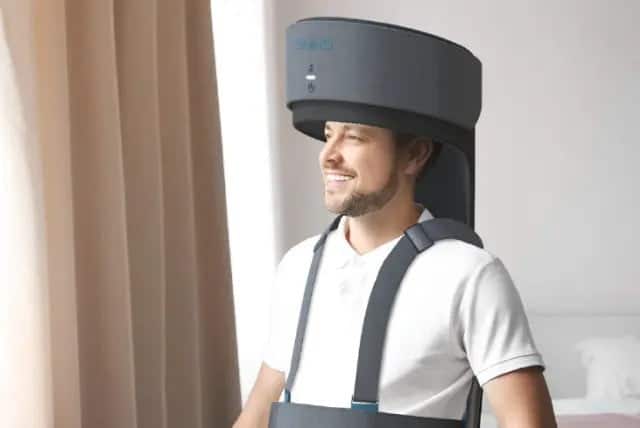BrainQ, an Israeli startup in the field of medical technology, has developed a revolutionary therapeutic platform to treat stroke victims.
The new treatment uses “artificial brain waves” through a wearable device that, according to clinical studies, has led 77% of subjects recover faster from strokes compared to those who have not experienced the treatment.
“Artificial brainwaves,” transmitted via electromagnetic radiation, stimulate the nervous system to regrow and heal itself.
In summary: With this method, BrainQ was able to mimic the synchronization processes of the human neural network.

A systematic review
The results of the trial are very encouraging, and will be presented as part of the International Stroke Conference between 17 and 19 March.
The double-blind research involved 25 subjects. After 8 weeks of treatment, 77% of subjects who received BrainQ therapy had scores of 1 or 0 on the modified Rankin Scale (mRS), the gold standard for measuring disability after stroke.
This score translates into individuals who have no symptoms or minor symptoms and no significant disability. Only 25% of subjects in the control group achieved scores of 1 or lower. And almost all patients, 92%, improved by 2 or more mRS points.
No related adverse events were recorded.
Surprising results in the fight against stroke
These pilot results are surprising: BrainQ therapy suggests a beneficial effect from the subacute stage.
Current stroke interventions are effective only in the few hours following a stroke and applicable to fewer than 5-10% of patients. This technology may have the ability to extend the period of time in which corrective therapy can be delivered to weeks. And it may be applicable to a much larger patient population.
Jeffrey Saver, director of the UCLA Comprehensive Stroke and Vascular Neurology program and principal investigator of this (and upcoming) trials of BrainQ.
Artificial brain waves against stroke
BrainQ's stroke therapy uses algorithms automatic learning to extract biological insights from brain waves, which are used to mimic the natural synchronization processes of the neural network.
The therapy is delivered to a patient via a cloud-connected wearable device that transmits frequency-tuned, low-intensity electromagnetic fields, facilitating neuroplasticity processes within the central nervous system.
Israeli start-up BrainQ aims to transform the lives of millions of people.
His can become the main neuro-therapeutic solution at home, and bodes well for a future of faster and more complete recovery from stroke.


